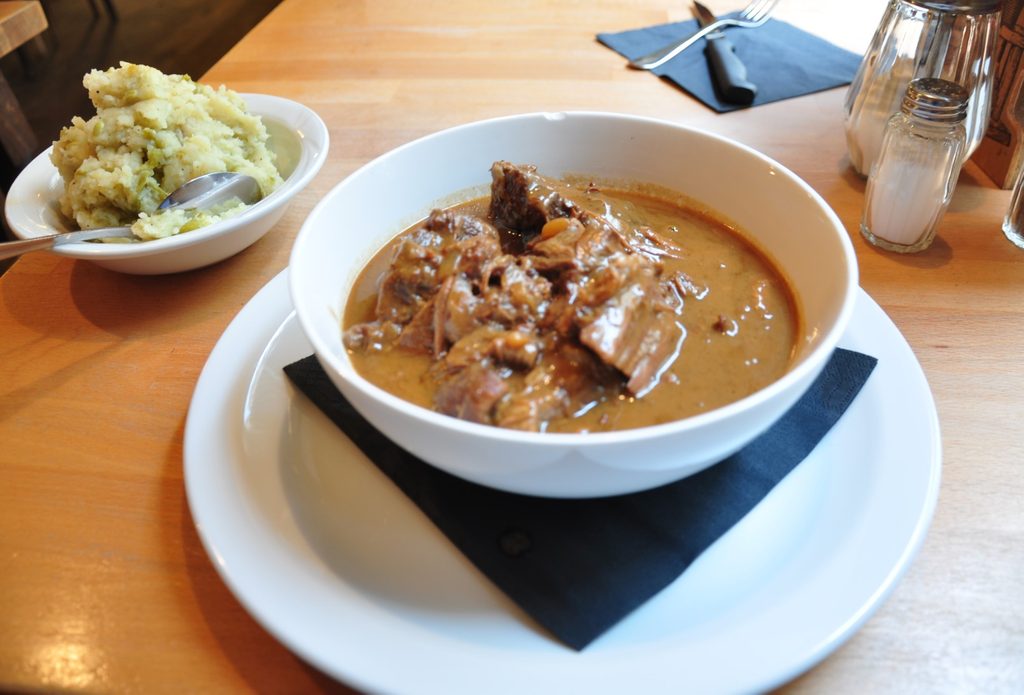In a move likely to please Flemish foodies, the regional government has earmarked €38 million to create a Flemish Culinary Centre, which will open soon in Antwerp.
The centre – to be named the 'Smaakhaven' ('taste haven') – will feature food stands, studios for television cooking programmes and a "taste bar" where visitors can sample classic Flemish fare, including stoofvlees (beef stew), stoemp (potato and vegetable mash), and lokerse paardenworst (minced horse sausages in tomato sauce).
TV chef Jeroen Meus applauded the centre and said on Flemish radio that it provides a long-overdue space "to support Flemish and Belgian culinary heritage."
Jöran de Backer, the head chef of Sir Anthony Van Dijck (one of Antwerp's most acclaimed restaurants), echoed these sentiments: "It will attract more tourists to Antwerp city centre," he told De Standaard. "I hope that the Smaakhaven will convey Flemish cuisine with the required skill. Tourist guides tell you where to find the best Italian or the best Chinese [restaurants] so maybe tourists should also get to know our local cuisine."
What makes a meal 'Flemish'?
Despite welcoming the centre, Flemish chefs acknowledged that there isn't anything particularly distinct about Flemish food compared to other kinds of Western European cuisines.
"We don't have anything like a tapas or mezze culture," Meus said. "Of course we have dishes for which we all feel nostalgia – such as stew, Ghent waterzooi (chicken or fish stew) and chicory with ham and cheese, but actually our food is strongly based on French cuisine. Vol-au-vent, for example, actually came from France."
Meus also pushed back against efforts to portray Flemish cuisine as something remarkable or exclusive to the region: "Where do you draw the line?... Spaghetti with minced meat, peppers, mushrooms and carrots is often made in Belgium. If you tell that to an Italian, you'll probably wake up with a horse's head in your bed."
Related News
Michael Vanderhaeghe, the head chef of Hostellerie Saint Nicolas, a Michelin-starred restaurant in West Flanders, stressed that Flemish food – much like every other kind of cuisine – changes and evolves over time.
"We think rice pudding is 'ours'," Van Vaerenbergh told De Standaard. "But in 16th-century cookbooks, it is described as 'Spanish pudding' and cooking rice in milk with sugar and spices actually comes from Arab culture. We think that Flemish cuisine has remained unchanged for centuries, but in reality it has not."

